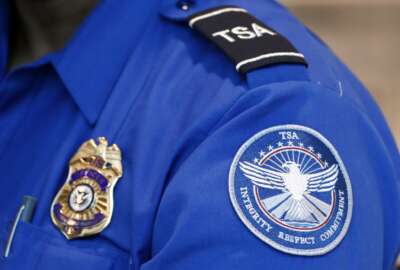The powerful we don’t elect
Cabinet nominees, judges — those names will be debated, dragged through the mud. But presidents bring in many more people they alone can choose.
As the nation careens wildly to the choice of the next president, don’t forget that with a president comes a retinue of the unelected. Some will have lots of influence, some will be gone within months.
Cabinet nominees, heads of regulatory agencies and judges — those names will be debated, dragged through the mud, insulted in the Senate. But presidents bring many more people they alone can choose. For instance, their personal secretaries.
For most Americans, the name Marguerite “Missy” LeHand may have been occluded by time. But the personal secretary to Franklin Roosevelt had tangible impact on history. Many people confuse her with Lucy Mercer. Mercer is the woman who’d had an affair with FDR in 1916 — long before polio rendered him a paraplegic, his political comeback as New York governor, and his historic presidency.
LeHand was an intimate of FDR from 1921 to 1941, a period that included the polio, recovery, comeback and pre-war presidential period. A stroke ended her career in 1941.
LeHand had a far more personal and intimate relation with FDR than Eleanor Roosevelt did. The famous and powerful knew that to have any chance of getting something before FDR, they had to go through LeHand. LeHand could read FDR’s mind, privately offered policy and personnel advice, made sure appointments ended when they should or when the president wanted, and had a hand in many of his important speeches.
This is all chronicled in detail in a great new summer book, which I read over the past weekend. “The Gatekeeper,” by Kathryn Smith, blends many well-known anecdotes with her own new research into the relationship between FDR and LeHand. Also between LeHand and other important figures of the era, such as diplomat William Christian Bullitt, Jr., the first U.S. ambassador to the Soviet Union. Smith includes vignettes of other FDR-connected characters such as Louis Howe, Pa Watson and Eleanor-confidant Lorena Hickok.
Because I wondered — and maybe you do too, because it has been widely speculated for three-fourths of a century — I’ll answer the big question: No. Smith concludes (and on good circumstantial evidence), LeHand was not sexually involved with FDR. In fact she was also doted on by Eleanor, who was aware that Missy provided an emotional space and companionship on travels for FDR that Eleanor could not.
Although her title was personal secretary, LeHand was the president’s gatekeeper in book’s title. She was the first person the president saw in the mornings. Roosevelt took breakfast in bed and worked there, often until late in the morning. Missy was the last person he saw before retiring at night. She lived in a suite on the third floor of the White House.
Acknowledged by those who had dealings with the administration, LeHand also enjoyed public prominence in her time. The subject of many magazine and newspaper profiles, her travels and presumed romantic involvements were often chronicled. She never married.
LeHand’s work and her relationship with the Roosevelts has been covered in other biographies and films, but to my knowledge The Gatekeeper is the first one primarily about Missy.
President John F. Kennedy had Dave Powers, Richard Nixon had Haldeman and Ehrlichman, President Barack Obama had Valerie Jarrett and Brian Mosteller. No two presidents operate in the same way. The people, the relationships all differ. But you can find many parallels. The “gatekeepers” have this in common: uncommon closeness with presidents, and known and unknown effects on history.
Copyright © 2024 Federal News Network. All rights reserved. This website is not intended for users located within the European Economic Area.
Tom Temin is host of the Federal Drive and has been providing insight on federal technology and management issues for more than 30 years.
Follow @tteminWFED







